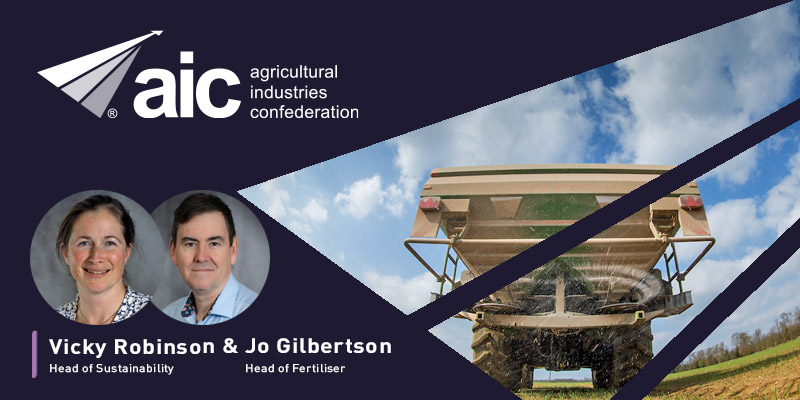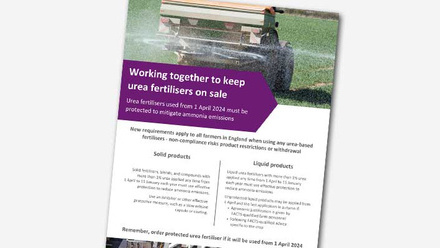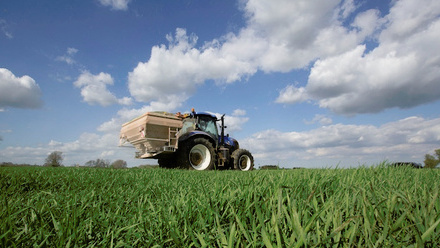Blog: How farms in England are improving air quality with an ammonia mitigation scheme

For National Clean Air Day (20 June 2024), the Agricultural Industries Confederation's Head of Sustainability Vicky Robinson and Head of Fertiliser Jo Gilbertson share how and why farms in England are helping to improve air quality.
This year farms throughout England have taken important action to significantly cut air pollution caused when they nourish their crops and grassland with commonly used fertilisers containing urea.
Government statistics show that 5.2% and 2.7% of total UK emissions come from solid urea and urea ammonium nitrate (UAN) fertiliser use in England respectively.
Urea fertilisers are safe to use responsibly and are widely applied by farmers in a solid or liquid form to promote the growth of healthy crops and grass which ultimately feeds people and animals around the world.
After these types of fertiliser are applied to land, they emit ammonia gas which may combine with nitrogen oxides and sulphur dioxide to form particulate matter in the air - something that can cause respiratory health issues.
Ammonia emissions also contribute to the acidification of soils and eutrophication of habitats and water bodies.
Proactive solution
From 1 April 2024, an industry-led scheme (sometimes referred to within the industry as "Option 4") agreed upon between the Government and organisations representing UK agriculture, including the Agricultural Industries Confederation (AIC), and farming unions took effect.
It means that solid, liquid, blends and compound fertiliser products with more than 1% urea applied any time from 1 April through to 15 January each year must use effective protection to reduce ammonia emissions.
This effective protection may mean using an inhibitor with the fertiliser, which not only helps to stop the ammonia gases from being emitted into the air but also enhances plant nutrient uptake.
This voluntary ammonia mitigation commitment is a part of the Red Tractor farm assurance scheme standards, meaning it now forms part of the regular inspections that farms receive.
Collaborative industry effort
Since 2021 AIC has been working closely with the industry and the Government to find practical ways to cut agriculture's ammonia emissions.
We needed to work together to come up with a better alternative to the blunt instrument of completely banning urea fertilisers that was originally touted by the Government.
Urea fertilisers are a valuable tool for farmers and growers. Put simply, these products feed the crops that feed the world.
Outlawing the use of urea fertilisers would have severe implications for fertiliser supply and choice for farmers, putting the UK's food security at risk.
Instead, the industry's proactive approach maintains farmers' access to these vital fertilisers by giving the Government confidence that they are being used responsibly and therefore a ban isn't necessary.
It also means the agricultural industry is playing its part in helping to meet the UK's legally binding air quality targets for ammonia emissions - part of the Government’s Clean Air Strategy - contributing to the drive for cleaner air for everyone.







